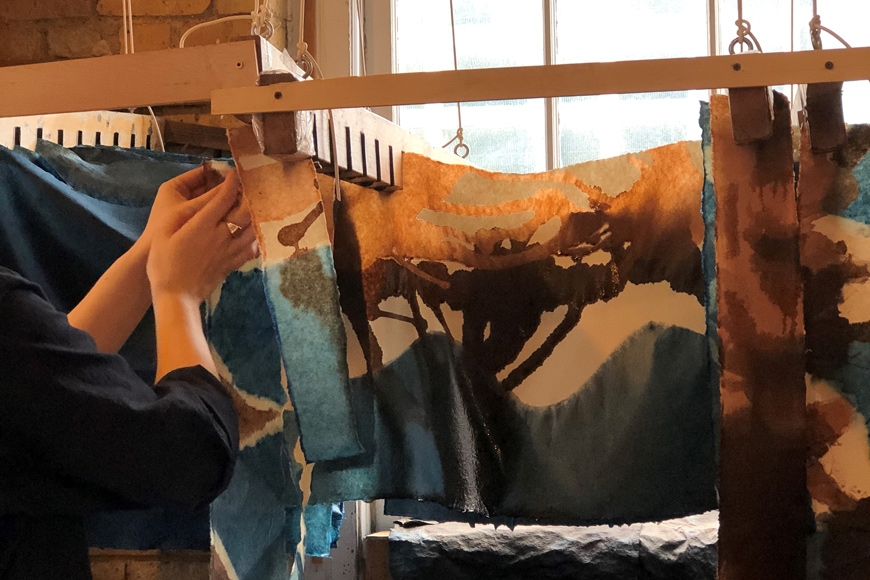Research Workshops and Reading Groups

About our Workshops
Each academic year, the Center for Premodern Studies (CPS) funds approximately 10 research workshops. These faculty- and graduate student-led initiatives involve scholars at the University of Minnesota as well as partners at local, national, and international institutions.
Research workshops address intellectual questions in global premodern studies and vary greatly in their topics of inquiry and workshop activities—ranging from small reading groups focused on a diverse global literature to workshops linked to graduate seminars, conferences, and major research initiatives. CPS research workshops model collaboration across disciplines, chronologies, and geographies. The research workshops have become the core of the consortium in terms of scope and level of participation.
Complete List of 2022-2023 Research Workshops
| Title, Leader(s) | Focus |
|---|---|
|
Early Modern Atlantic Workshop Contacts: Katharine Gerbner and Hannah Smith |
A research workshop devoted to the Atlantic world in the early modern period and the transatlantic networks linking Europe and Africa with the Americas.. |
|
Making and Knowing: Histories of Premodern Books and Print Contacts: Emily Beck, Lois Hendrickson, and Hannah Wiepke |
This workshop employs an integrated approach to studying the materiality of prints and texts. Participants will learn the fundamentals of codicology, analyzing the materiality of books in order to fully explore these complex and multifaceted resources. This workshop will also engage the mediational qualities of print including the ways in which printed images circulate, request viewer interaction, and translate visual information. |
|
Premodern Food Lab Contacts: Michelle Hamilton, Emily Beck, Sarah Gardner, Marguerite Ragnow, and Anne Good |
The Premodern Food Lab explores primary texts and secondary scholarship on premodern food and foodways. They frequently collaborate with local food producers. |
|
Religion, Theology & the Enlightenment Contact: Rachel Trocchio |
Characterizations of the eighteenth century as the “Age of Enlightenment” presume a move to enlightenment that is defined as a move away from, or at least a marginalization of, matters religious and especially theological. This workshop brings together faculty and graduate students interested in the Enlightenment, religion, and theology entanglement to share research, read scholarship of common interest, and generally dialogue about this modern problematic. |
|
Contacts: Jennifer Row & Penelope Geng
|
This workshop explores art and literature, theories, and scholarship connected to embodiment, disability, corporeality, the allure of the flesh, and issues of physical and virtual embodiment. We engage readings and research-in-progress on abjection, empathy and virtual reality, genetic mutations/metamorphosis, legal and medical constructions of the body (including trans bodies), cultures of disability, body horror in film, seeing bodies in media, etc. These topics are considered both as they operate in the early modern and contemporary context. Follow them on Twitter at @uncommonbodies. |
|
Premodern Podcast Contacts: Moinak Choudhury, Lydia Garver, Katherine Pierpont, Karen Soto, and Elijah Wallace |
The Premodern Podcast is a cabinet of curiosities for the ears where scholars, librarians, and curators share thematic adventures in the historical humanities. The first season, entitled “I’ve Got a Thing,” is a series of conversations about the objects, documents, and stories that premoderists just can’t stop thinking about. |
|
Premodern Workshop Contacts: Christopher Saladin and Stephan Knott |
The Premodern Workshop brings together an interdisciplinary group of graduate students and faculty to share and receive feedback on their works-in-progress. These works can take any format, ranging from seminar papers to dissertation chapters or conference presentations, and be on a topic relating to the premodern world, broadly defined in terms of chronology or geography. Each week, the presenting author precirculates their work ahead of time and the group discusses the work using our “Talking Behind Your Back” format, a unique staple of our workshop. This exercise is difficult for discussants and authors alike. It proceeds as do many discussions of work-in-progress, where discussants share their thoughts with the group, including points of interest, questions, and critiques. The difference is that the author is in the room but may not speak until the end of the discussion. The goal is to allow the work to speak for itself and for participants to engage with each other, allowing the author to see how a diverse group of people receives their work. |
|
First Millennium: Religion in Late Antiquity Contacts: Jeffery Cross, Alex Magnolia, Andrea Sterk, and Elijah Wallace |
A workshop devoted to the study of Late Antiquity, an age of transition from the classical world to the cultures of early medieval Europe, Byzantium, and the Near East. This was also the period when the three major monotheistic religions took shape, and religious developments across Afro-Eurasia will be a central theme of the workshop. |
|
Medieval Books in the Schools |
An internal workshop dedicated to improving the center's current K-12 outreach curricula. We send graduate students into local classrooms and present on manuscript culture and material (book) production. These presentations are geared toward the K-8 classroom and include fun period clothing and authentic medieval book materials like inks, quills, and parchment. |
Past Workshops